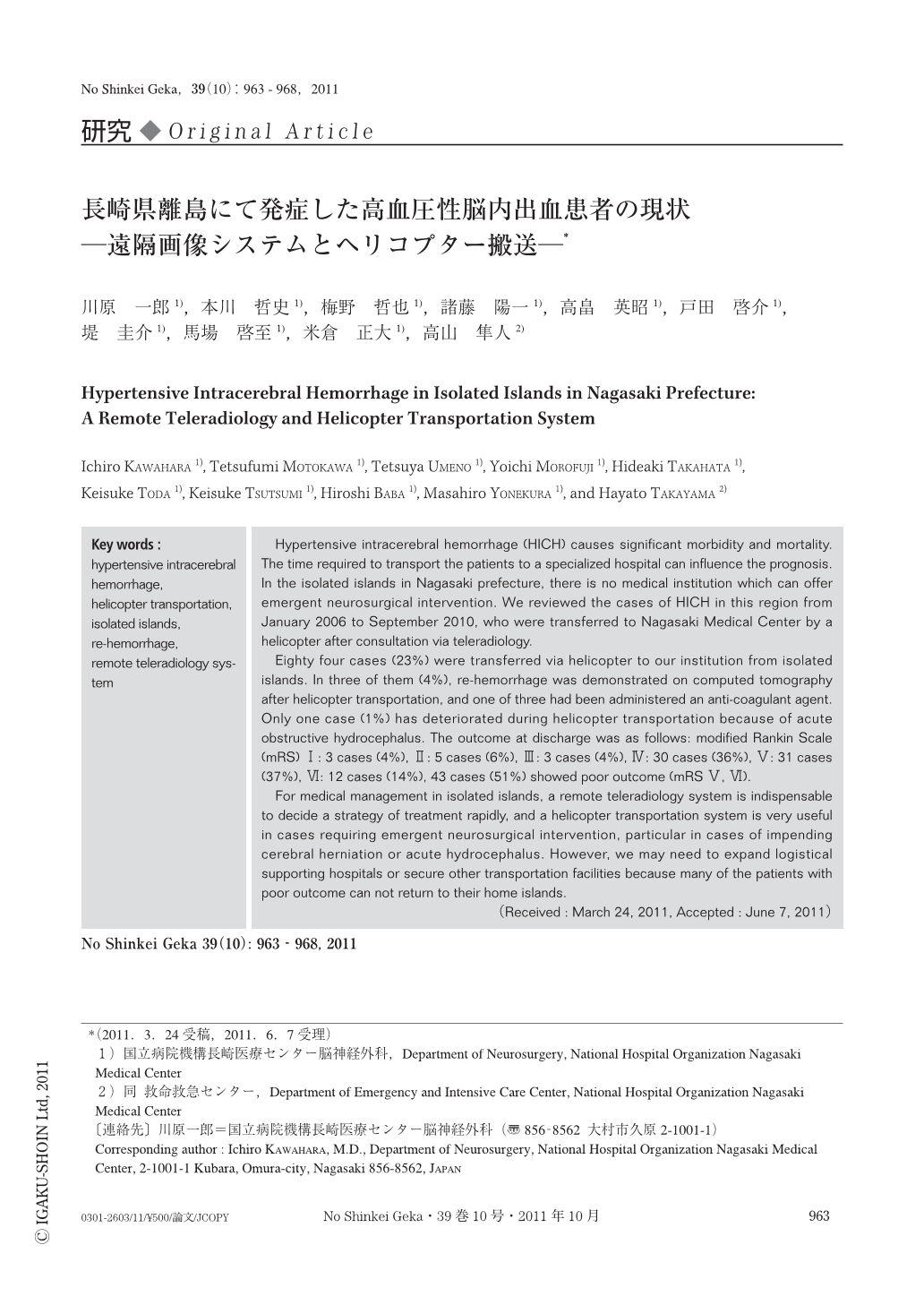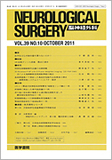Japanese
English
- 有料閲覧
- Abstract 文献概要
- 1ページ目 Look Inside
- 参考文献 Reference
Ⅰ.はじめに
長崎県は九州の最西端に位置し,大小約600の島々を有する全国一の離島県であり,代表的な大型有人島として対馬,壱岐島,五島列島がある(Table).現在,法指定の離島地域には,県人口の10%にあたる約15万人が暮らしており,公的病院,公設診療所,開業医院により医療が行われている.脳神経外科領域に関しては,地理的に不利な条件に加え外科的緊急手術を行える医療施設がないこともあり,以前よりこれらの離島にて発症した脳神経外科救急患者のほとんどは,海上自衛隊によるヘリコプター(ヘリ)搬送にて当施設へ搬送されてきた(Fig. 1).現在では,ドクターヘリ(Fig. 2A),県消防防災ヘリが加わり,計3機の稼働にて離島医療を援助している.また,1991年より離島医療情報システム(遠隔画像診断システム)が導入され,医療施設間で専門的な診断や治療方針についてのコンサルテーションが可能となり,ヘリ搬送の要請がより速やかになった(Fig. 3).
Hypertensive intracerebral hemorrhage (HICH) causes significant morbidity and mortality. The time required to transport the patients to a specialized hospital can influence the prognosis. In the isolated islands in Nagasaki prefecture,there is no medical institution which can offer emergent neurosurgical intervention. We reviewed the cases of HICH in this region from January 2006 to September 2010,who were transferred to Nagasaki Medical Center by a helicopter after consultation via teleradiology.
Eighty four cases (23%) were transferred via helicopter to our institution from isolated islands. In three of them (4%), re-hemorrhage was demonstrated on computed tomography after helicopter transportation, and one of three had been administered an anti-coagulant agent. Only one case (1%) has deteriorated during helicopter transportation because of acute obstructive hydrocephalus. The outcome at discharge was as follows: modified Rankin Scale (mRS) Ⅰ: 3 cases (4%), Ⅱ: 5 cases (6%), Ⅲ: 3 cases (4%), Ⅳ: 30 cases (36%), Ⅴ: 31 cases (37%), Ⅵ: 12 cases (14%), 43 cases (51%) showed poor outcome (mRS Ⅴ, Ⅵ).
For medical management in isolated islands,a remote teleradiology system is indispensable to decide a strategy of treatment rapidly,and a helicopter transportation system is very useful in cases requiring emergent neurosurgical intervention,particular in cases of impending cerebral herniation or acute hydrocephalus. However,we may need to expand logistical supporting hospitals or secure other transportation facilities because many of the patients with poor outcome can not return to their home islands.

Copyright © 2011, Igaku-Shoin Ltd. All rights reserved.


